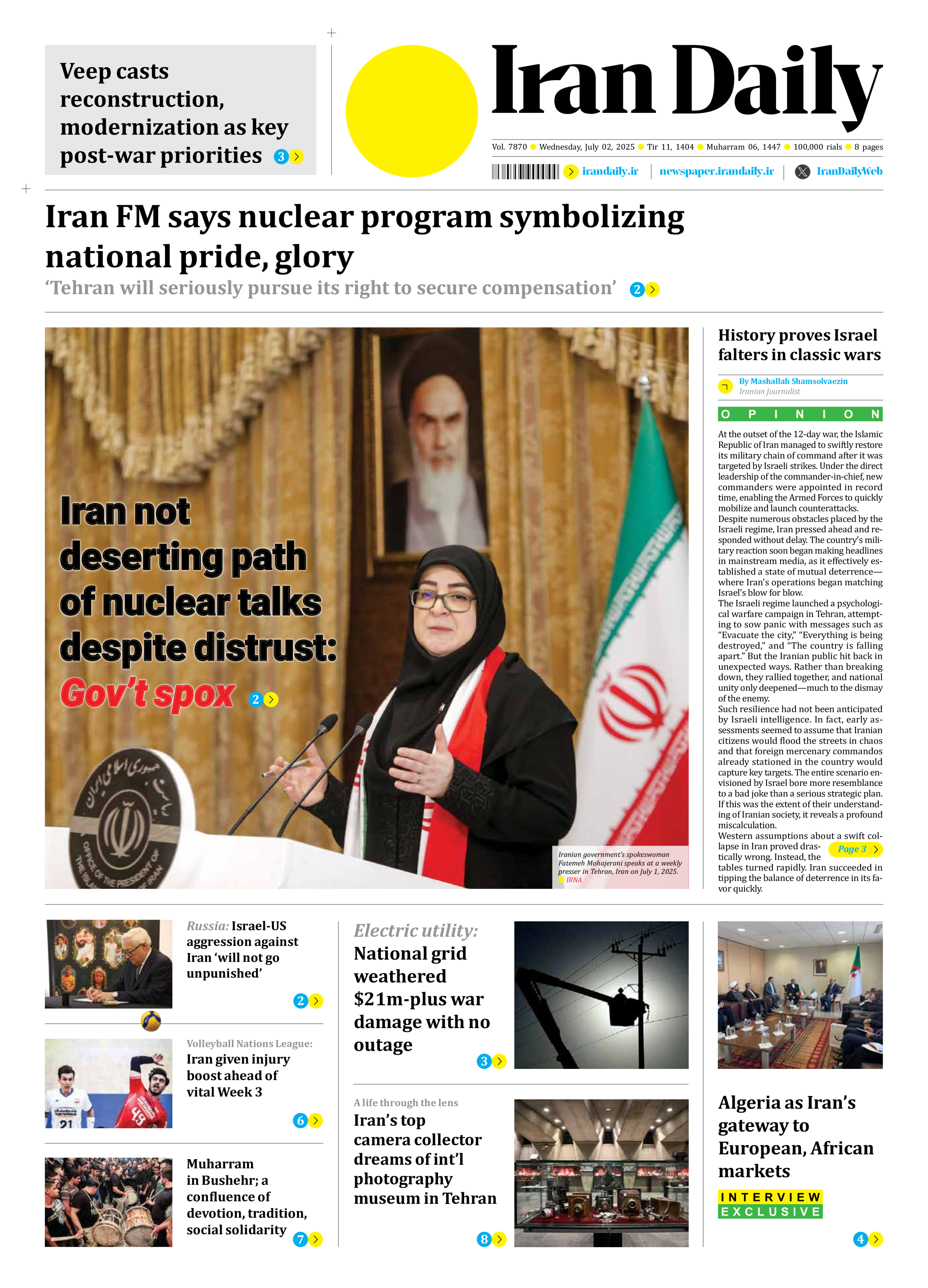
History proves Israel falters in classic wars
By Mashallah Shamsolvaezin
Iranian Journalist
At the outset of the 12-day war, the Islamic Republic of Iran managed to swiftly restore its military chain of command after it was targeted by Israeli strikes. Under the direct leadership of the commander-in-chief, new commanders were appointed in record time, enabling the Armed Forces to quickly mobilize and launch counterattacks.
Despite numerous obstacles placed by the Israeli regime, Iran pressed ahead and responded without delay. The country’s military reaction soon began making headlines in mainstream media, as it effectively established a state of mutual deterrence—where Iran’s operations began matching Israel’s blow for blow.
The Israeli regime launched a psychological warfare campaign in Tehran, attempting to sow panic with messages such as “Evacuate the city,” “Everything is being destroyed,” and “The country is falling apart.” But the Iranian public hit back in unexpected ways. Rather than breaking down, they rallied together, and national unity only deepened—much to the dismay of the enemy.
Such resilience had not been anticipated by Israeli intelligence. In fact, early assessments seemed to assume that Iranian citizens would flood the streets in chaos and that foreign mercenary commandos already stationed in the country would capture key targets. The entire scenario envisioned by Israel bore more resemblance to a bad joke than a serious strategic plan. If this was the extent of their understanding of Iranian society, it reveals a profound miscalculation.
Western assumptions about a swift collapse in Iran proved drastically wrong. Instead, the tables turned rapidly. Iran succeeded in tipping the balance of deterrence in its favor quickly
Page 3.







